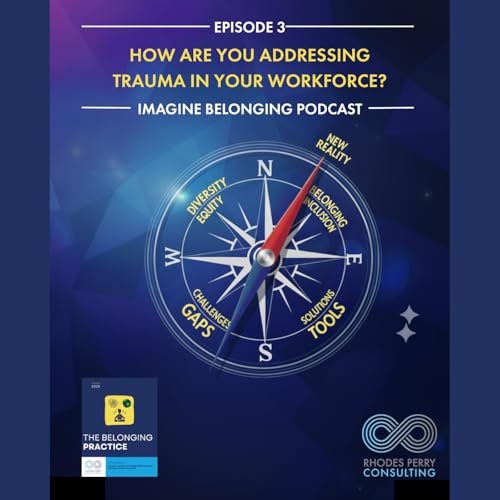
How Are You Addressing Collective Trauma in Your Workforce?
Failed to add items
Add to basket failed.
Add to Wish List failed.
Remove from Wish List failed.
Follow podcast failed
Unfollow podcast failed
-
Narrated by:
-
By:
About this listen
In this episode of the Navigating Diversity, Equity, and Inclusion's New Reality mini-series, we're talking about something every leader needs to be aware of: the profound impact of collective trauma and grief on your workforce. Host Rhodes Perry shares how the current climate amplifies fear and anxiety, disrupting the very fabric of trust and psychological safety in the workplace.
This episode provides actionable, trauma-informed strategies to support your employees. You'll learn how to:
-
Provide psychological safety first aid.
-
Acknowledge and validate employees' grief.
-
Model collective care by giving support and requesting it.
By implementing these best practices, you can help your team cope with the ongoing challenges and build an enduring culture of creativity, connection, and belonging. Don't ignore the hidden impacts on your workforce—listen now to learn how to lead with empathy and clarity.
Key Takeaways & Timestamps
- [2:00] Defining collective trauma and its impact on the workforce.
-
[4:30] Best practices for bolstering psychological safety.
-
[7:00] How to practice collective care and cope with trauma.
-
[9:45] Best practices for acknowledging and validating employee grief.
-
[12:15] Practices to avoid when addressing collective trauma.’
Grow the Belonging Movement!
-
📝Sign up for the Belonging Movement Newsletter: http://www.rhodesperry.com/subscribe
-
📚Get a copy of Imagine Belonging: http://www.rhodesonamazon.com/
🏆Book a 1:1 coaching session with Rhodes: https://tinyurl.com/5n6f47pz


